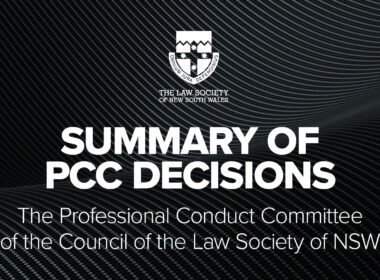A key part of the client engagement process involves checking that the person instructing has the capacity and authority to provide those instructions.
Where the client is an individual who is unable to instruct personally, it will be necessary to check the basis on which another person can provide instructions, for example, as an appointed tutor/guardian, or financial manager, or attorney appointed under an enduring power of attorney. In the case of a corporate client, the engagement process may involve identifying directors and checking delegations of authority, such as undertaking searches with ASIC.
But what happens if things change during the course of a matter? Sometimes the person who provided initial instructions no longer has authority to provide ongoing instructions in relation to the matter.
The recent Western Australian decision of Legal Services and Complaints Committee and Robertson [2023] WASAT 127 involved a solicitor who was instructed to act for two defendants in proceedings in the Supreme Court of that State. The first defendant was a company and the second defendant was its director. Six months after taking on the matter the company was placed into administration. The solicitor advised the other parties that administrators had been appointed, but the administrators were not made aware of the litigation until two years later at which point they refused consent for the proceedings against the company to be continued.
In the meantime the solicitor had signed a series of Minutes of Consent Orders dealing with directions and timetabling matters as solicitor for both the first and second defendants, prepared and circulated a Minute of Amended Defence that purported to plead a case on behalf of the first defendant, and advised the court and the plaintiff that he appeared on behalf of both the first and second defendants. By way of explanation the solicitor suggested that he simply overlooked or did not appreciate the impact of the appointment of administrators or was operating on the mistaken belief that even though the first defendant was in administration the second defendant could continue to instruct him in relation to the conduct of the first defendant’s defence.
The Tribunal made a determination that the solicitor purported to act for a party in the Supreme Court proceedings when he was not authorised and had no instructions to do so, and that in his dealings with other parties and the court the solicitor made misleading statements and intended the other parties and the court to be misled by those statements. The solicitor was found to have engaged in professional misconduct.
It is important to be alive to the events in the course of a matter that can mean that the person who provided initial instructions can no longer instruct. For individuals, it is important to be aware of the impact of declining or fluctuating health on the ability to make relevant decisions. For corporate clients, it is important to be abreast of organisational changes and, particularly, the impact of arrangements and reconstructions and appointments of administrators, receivers, and other controllers.




